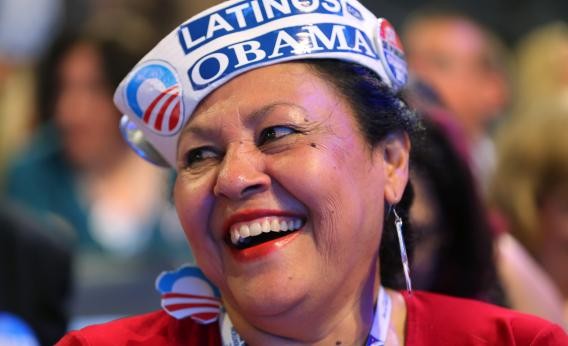Republicans’ fast, furious, and sudden embrace of immigration reform may have unintended consequences. And if winning national elections by mobilizing Hispanics is their goal, it might be too late.

For several years, we have advocated for changes to our existing immigration laws. In this column, we have called for comprehensive, bipartisan immigration reform that reflects the realities of our market-based economy. Such reform should reinforce our neighborly relationship with Mexico, a nation that precariously straddles the wall between the Third World and the First.
This past November, Barack Obama won 71 percent of the Hispanic vote, even though his relentless deportation program (a record 1.4 million people forced out of the United States in four years) continues unabated. Despite this, the president spoke the language of tolerance, inclusion, and reform while on the campaign trail, and Hispanic immigrants, documented and undocumented, were listening.
So now, barely a month into the president’s second term, some Republicans are speaking this (foreign) language of inclusion through a sudden conversion to the cause of immigration reform — something they characterized until a few weeks ago as merely amnesty for lawbreakers.
The idea of somnolent Spanish-speakers suddenly waking up and voting Republican after some sort of comprehensive reform is passed is completely out of step with recent Republican-imposed reality. Hispanics will vote for Republicans if Republican policies and positions favor issues important to them. Many Hispanics, we should remember, are raising children, earning very low wages, and living in substandard housing. Hispanics will vote for candidates who have specific plans to improve education for their kids.
Like all human beings, Hispanics want to live in safe neighborhoods, with a responsive, professional police force. They want decent housing and access to basic health care. They want public transportation that’s safe and functional. They don’t want to send their kids to Afghanistan or Iran.
What did the Republican platform offer this past November? Their program, in essence: lower taxes for the wealthiest of Americans and large corporations, massive cuts to social programs, and a possible invasion of Iran. The fact that 27 percent of Hispanics voted for that agenda is nothing short of miraculous.
Republicans might benefit from comprehensive immigration reform in that a new, national policy will probably shut down the dizzying array of primal “laws” coming out of state legislatures in Alabama, Georgia, Arizona, and South Carolina. Passing and enforcing immigration laws is a federally prescribed prerogative (and obligation), and new immigration reform laws, passed in a bipartisan manner, should dampen down the rhetoric from the individual states. Those state laws, which are designed to impose maximum suffering on the undocumented, have been written, passed, and praised by Republican state legislators. Ruling through cruelty is never a politically sustainable plan of governance.
Here we are, once again, and we hope that a national, bipartisan plan to reform our outdated immigration laws is passed by the end of this year. It is unlikely that such reform will result in an immediate Hispanic pivot to the Republican Party, even if the plan passes with strong Republican support. We look forward to studying the details of the legislation that emerges in the months ahead, and we hope the cruel, racist, xenophobic rhetoric of the recent past recedes and dissipates, replaced by a much more enlightened discussion on immigration and the immigrants among us.
Bryce Ashby is a Memphis-based attorney. Michael J. LaRosa teaches history at Rhodes College.